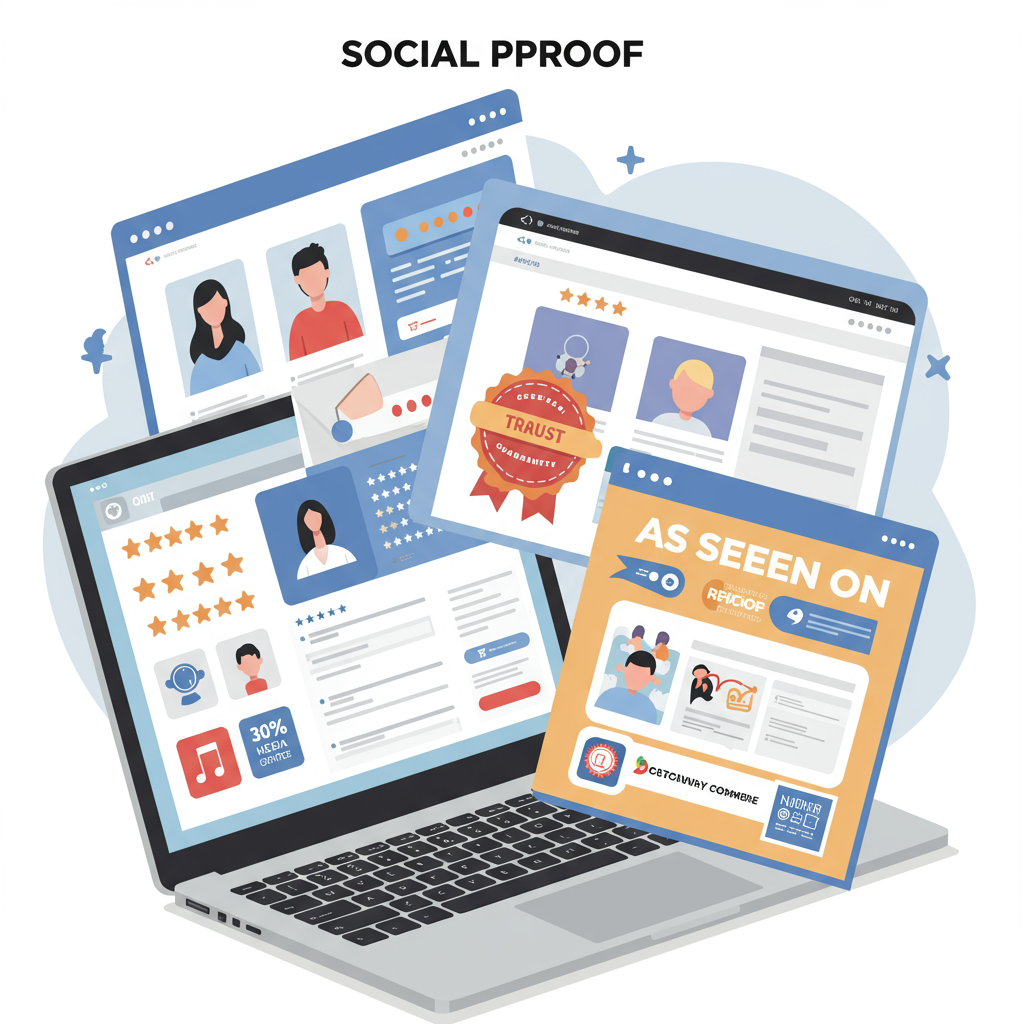Discover how leveraging customer trust and collective endorsement can dramatically boost your e-commerce conversions and build lasting brand loyalty.
As a Shopify merchant, you’re constantly looking for ways to boost sales and build trust with your customers. It’s a competitive landscape out there, and standing out is paramount.
Today, I want to talk about one of the most powerful psychological phenomena you can leverage: social proof. It’s not just a buzzword; it’s a fundamental aspect of human decision-making.
Simply put, social proof is the idea that people will conform to the actions of others under the assumption that those actions are correct. If others are doing it, it must be good, right?
For your Shopify store, this translates into showing potential customers that others have already bought, used, and loved your products. It’s about building confidence through collective endorsement.
Think about it: when you’re shopping online, are you more likely to buy a product with zero reviews or one with hundreds of glowing testimonials? The answer is almost always the latter.
Implementing social proof strategies on your Shopify store isn’t just a nice-to-have; it’s a necessity for converting browsers into buyers and fostering long-term customer loyalty.
Let’s dive into the various types of social proof you can effectively integrate into your Shopify ecosystem, starting with the most obvious and impactful: customer reviews and testimonials.
**Customer Reviews & Testimonials:** These are the bedrock of social proof. They provide authentic, unbiased feedback directly from people who have experienced your product or service.
On Shopify, there are numerous apps like Loox, Yotpo, and Judge.me that make collecting and displaying reviews incredibly easy. I highly recommend investing in one of these.
Encourage customers to leave reviews by sending automated follow-up emails after purchase. Offer a small discount or incentive for their time, but ensure the review itself remains genuine.
Display these reviews prominently on product pages, your homepage, and even dedicated testimonial pages. Star ratings are crucial for quick visual assessment.
**User-Generated Content (UGC):** This goes beyond simple reviews. UGC includes photos, videos, and social media posts created by your customers featuring your products.
UGC is incredibly powerful because it feels more authentic and relatable than polished brand marketing. It shows real people using your products in real-life situations.
Encourage UGC by running contests, creating a unique brand hashtag, and featuring customer photos on your product pages or Instagram feed. Always ask for permission before reposting!
**Influencer Marketing:** Collaborating with influencers, whether micro or macro, can expose your brand to a new, engaged audience who trusts the influencer’s recommendations.
When an influencer showcases your product, it acts as a powerful endorsement. Their followers see them using and loving your items, which can drive significant traffic and sales to your Shopify store.
**Social Media Engagement:** A strong presence on platforms like Instagram, Facebook, and TikTok, evidenced by a high follower count, likes, shares, and comments, signals popularity and credibility.
While not directly on your Shopify store, your social media numbers can be subtly highlighted or linked to, showing a vibrant community around your brand.
**Trust Badges & Certifications:** These are visual cues that reassure customers about the security of their transactions, the quality of your products, or your commitment to certain standards.
Think about displaying badges for secure payment gateways (Visa, Mastercard, PayPal), SSL certificates, money-back guarantees, or even ‘eco-friendly’ certifications if applicable.
**’As Seen On’ / Media Mentions:** If your brand has been featured in reputable publications, blogs, or TV shows, proudly display their logos on your homepage. This lends significant authority.
**Popularity Indicators:** These create a sense of urgency and social proof by showing real-time activity. Examples include ‘X people bought this recently’ or ‘Y people are viewing this product now.’
Many Shopify apps offer this functionality, subtly nudging hesitant buyers by showing them that others are actively interested in or purchasing the same item.
**Expert Endorsements:** If your product is endorsed by an expert in its field (e.g., a dermatologist recommending a skincare product), this can be incredibly persuasive.
**Best Practices for Implementation:** Always prioritize authenticity. Fake reviews or inflated numbers will quickly erode trust. Quality over quantity is also important, but a good volume helps.
Strategically place your social proof elements where they have the most impact – near the ‘Add to Cart’ button, on the homepage, and during the checkout process.
Don’t just set it and forget it. Regularly update your testimonials, respond to all reviews (positive and negative), and actively seek new forms of social proof.
Remember, even negative reviews can be an opportunity to show excellent customer service and transparency. How you handle criticism speaks volumes about your brand.
Finally, leverage your social proof across all your marketing channels. Use glowing testimonials in your email campaigns, social media ads, and even print materials.
By consistently applying these social proof strategies, you’ll not only build immense trust with your audience but also see a tangible increase in your conversion rates and overall sales.
It’s about creating a virtuous cycle: more social proof leads to more sales, which in turn generates even more social proof.
I truly believe that for any Shopify merchant, mastering social proof is one of the most effective ways to scale your business in today’s digital marketplace.
What do you think about these strategies? Have you found particular social proof tactics to be more effective than others for your Shopify store? I’d love to hear your insights.






